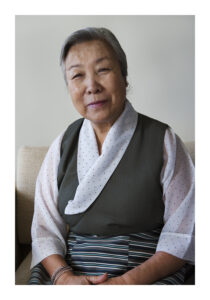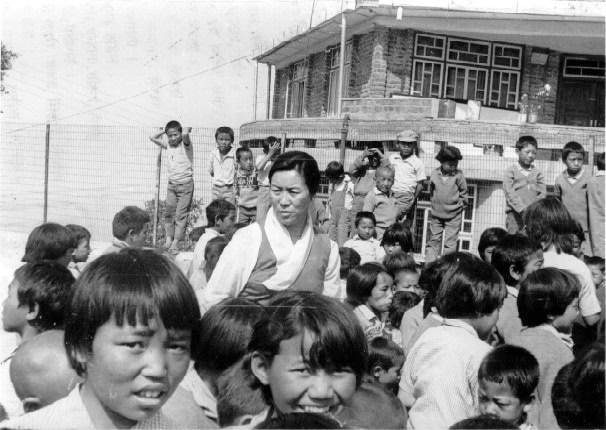Randolph to present the Pearl S. Buck Award to Jetsun Pema

Jetsun Pema
Jetsun Pema, the younger sister of His Holiness the 14th Dalai Lama, will be the recipient of Randolph College’s Pearl S. Buck Award on April 18 at 5 p.m.in Smith Hall Theatre.
The award—given to women who exemplify the ideals, values, and commitments of Buck, a member of the Class of 1914 and the first American woman to receive the Nobel Prize for Literature—is being reinstituted this spring.
Pema has dedicated her life to educating Tibetan children in exile.
She served as president of the Tibetan Children’s Villages, which take in and care for orphaned, destitute, and refugee children, from 1964 to 2006, and has been recognized as the “Mother of Tibet” by the Tibetan Parliament-in-Exile.
“We are so honored to award Jetsun Pema with the Pearl S. Buck Award this year for her advocacy and support of the children’s villages in Tibet,” said President Sue Ott Rowlands. “I cannot think of a more worthy recipient given Pearl S. Buck’s dedication to children and education in China.”
Pema will be presented with the award during a special ceremony on April 18. Randolph also plans to share a new documentary about her life during the event.
She was born in 1940 in Lhasa, the capital of Tibet, where her older brother had already been recognized as the 14th Dalai Lama.
She began her formal education at the age of 9 at St. Joseph’s Convent in Kalimpong. She was a young girl attending school in India in 1959 when the Dalai Lama was forced into exile to take refuge there after China’s invasion of Tibet.
After completing her Senior Cambridge at Loreto Convent in Darjeeling in 1960, Pema continued her studies in Switzerland and England.
In 1964, she returned to India after the sudden death of her eldest sister and was directed by her brother to take over responsibility of running the Tibetan Children’s Village (TCV) in Dharamsala.
Called “Amala,” or Respected Mother, by the children, Pema has led TCV to become one of the most successful Tibetan institutions in exile.

Today, TCV projects include five children’s villages with attached schools, seven residential schools, seven day schools, ten day care centers, four vocational training centers, four youth hostels, four homes for the elderly, and an outreach program for over 2,000 children in exile.
Besides her responsibility at the TCV school, in 1970, at the first General Body Meeting of the Tibetan Youth Congress, Pema was elected its vice president, and at the 1984 first General Body Meeting of the Tibetan Women’s Association, she was elected as an adviser.
In 1980, she was sent by the Dalai Lama to visit Tibet as the leader of the third Fact Finding Delegation and for three months traveled extensively all over the country.
She is also the first woman elected to the post of minister in the Tibetan Parliament-in-Exile, serving as minister for education.
She is the recipient of numerous international awards, including the World’s Children’s Prize for the Rights of the Child (Sweden), the Woman of Courage Award, the Maria Montessori Award in Italy, and a UNESCO Medal, as well as the prestigious Nari Shakti Puraskar award given by the Indian government to individual women or institutions that work toward the cause of women’s empowerment.
Pema is the seventh recipient of Randolph’s Pearl S. Buck Award.
Previous winners include Maya Lin (2004), an artist and designer responsible for the Vietnam Veterans Memorial; Mary Robinson (2003), the former president of Ireland; Jehan Sadat (2001), the former first lady of Egypt; Sheikh Hasina (2000), the former prime minister of Bangladesh; Corazon Aquino (1998), the former president of the Philippines; and Maxine Hong Kingston (2016), an acclaimed author known for works that blend her family’s stories in the United States with Chinese folklore.
Buck is known for her humanitarian work and for being a champion of civil rights, women’s rights, children’s rights, and the rights of those with disabilities long before these issues were talked about in public.
Her book, The Good Earth, for which she was awarded the Pulitzer Prize, offered a description of life in a Chinese peasant village and included perspectives of women who lived and experienced everyday hardships. Her tireless efforts to increase understanding between Asia and America left a lasting imprint on the world.
Tags: Pearl S. Buck, Pearl S. Buck Award
